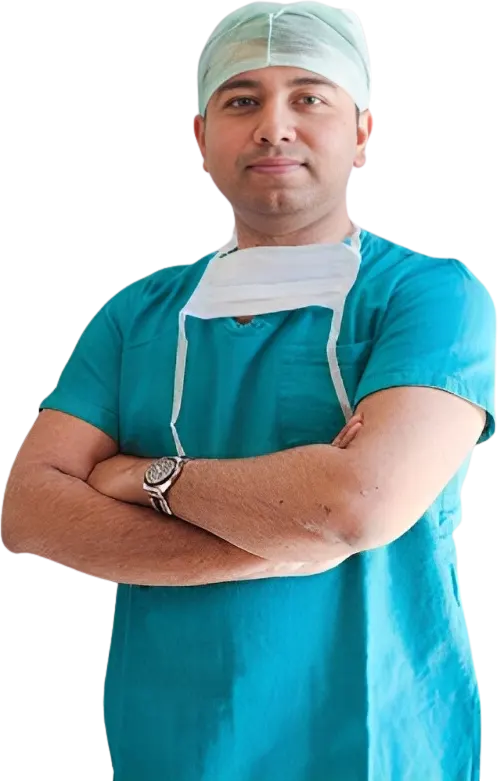
Best knee replacement surgeon in Jaipur with experience in managing trauma and joint disorders comprehensively.
Since 1991, Ginni Devi Hospital has been known for providing the Best Knee Replacement Surgeon in Jaipur by Dr. Pratul Jain, offering quality care to patients suffering from injuries and orthopedic conditions. Founded by Dr. Pradeep Jain with a strong humanitarian vision, the hospital has become a trusted name in joint care, led by an experienced Knee Replacement and Joint Replacement Surgeon in Jaipur, Rajasthan.
It is one of the best knee replacement hospitals in Jaipur and an NABH-certified destination for comprehensive orthopedic care. As a leading Orthopedic Hospital in Jaipur, GDMH ensures patients receive a full range of treatments from an experienced orthopedic knee specialist to maintain healthy, disease-free bones and promote optimal orthopedic well-being.
GDMH is a prestigious institution known for housing the top knee replacement surgeon in Jaipur and a skilled Orthopedic Surgeon dedicated to the orthopedic specialty. The hospital has earned remarkable goodwill for its exceptional patient care and cutting-edge technological facilities, making it a top choice for patients in Rajasthan.
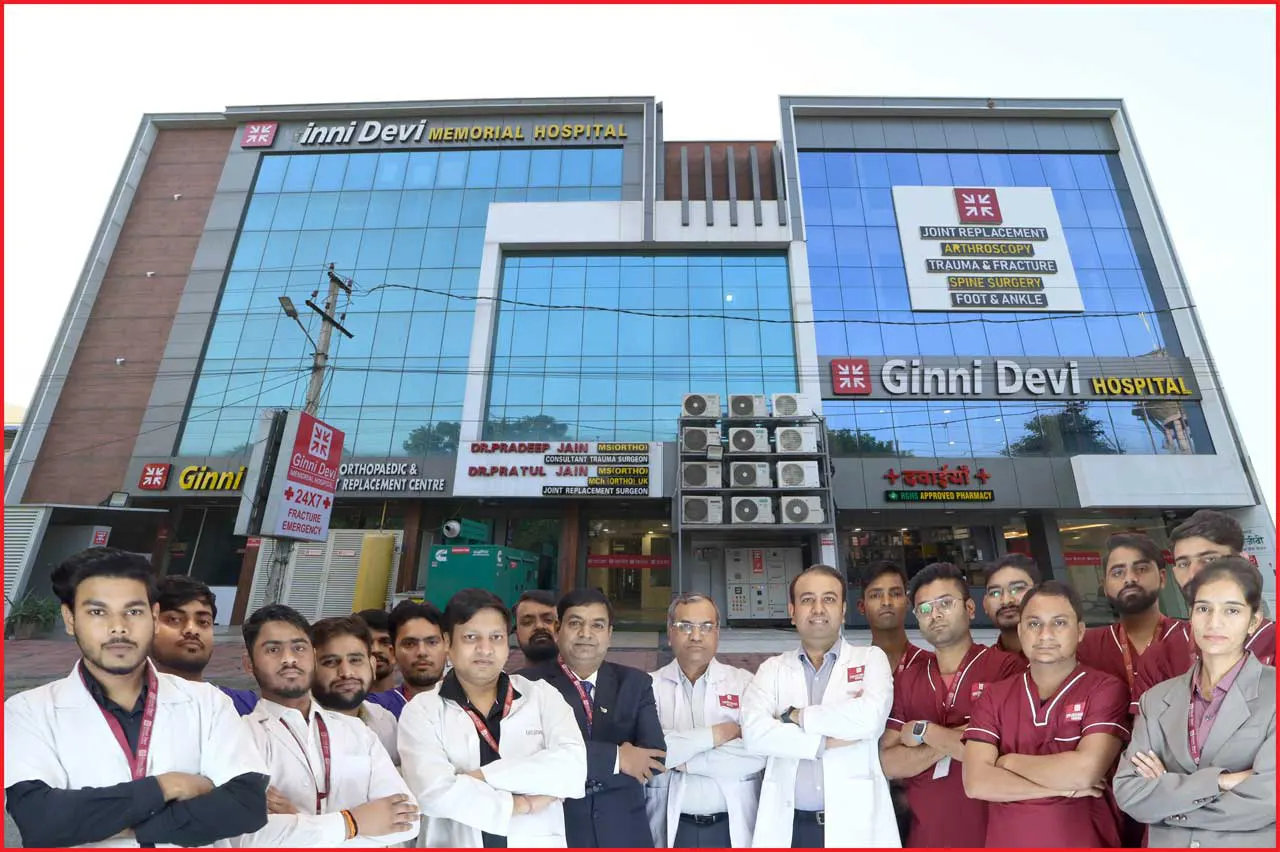
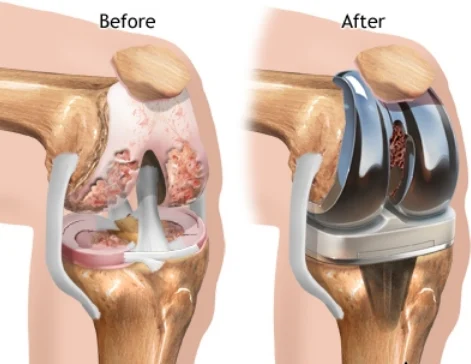
Knee replacement surgery is a specialized procedure in which a damaged or arthritic knee joint is replaced with a prosthetic implant made from high-quality metal, plastic, or ceramic components. This helps restore mobility and function, closely resembling that of a natural, healthy knee. Although joint replacement can also be performed on the shoulder, elbow, wrist, or ankle, knee and hip replacements remain the most frequently conducted procedures.
At Ginni Devi Hospital, Dr. Pratul Jain, a highly experienced Best Knee Replacement Surgeon in Jaipur, offers advanced orthopedic care using modern surgical techniques. He provides comprehensive treatment for a wide range of joint-related and musculoskeletal conditions. Patients benefit from his expertise and the hospital’s commitment to quality, resulting in effective relief and improved joint function.
During a knee replacement procedure at Ginni Devi Modi Hospital, the following steps are typically involved:
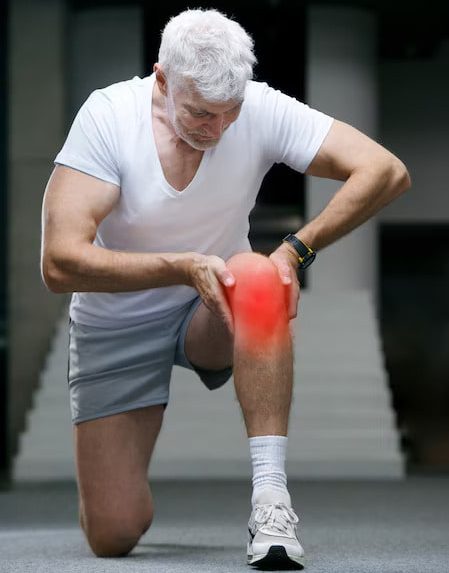

Total knee replacement is recommended when you are feeling severe pain while doing everyday activities, like walking, or even when you are resting or sitting. This surgery involves using an artificial joint in place of a damaged joint.

In partial knee replacement, only the damaged parts of your knee joint are replaced. The damaged section is replaced with plastic and metal components.
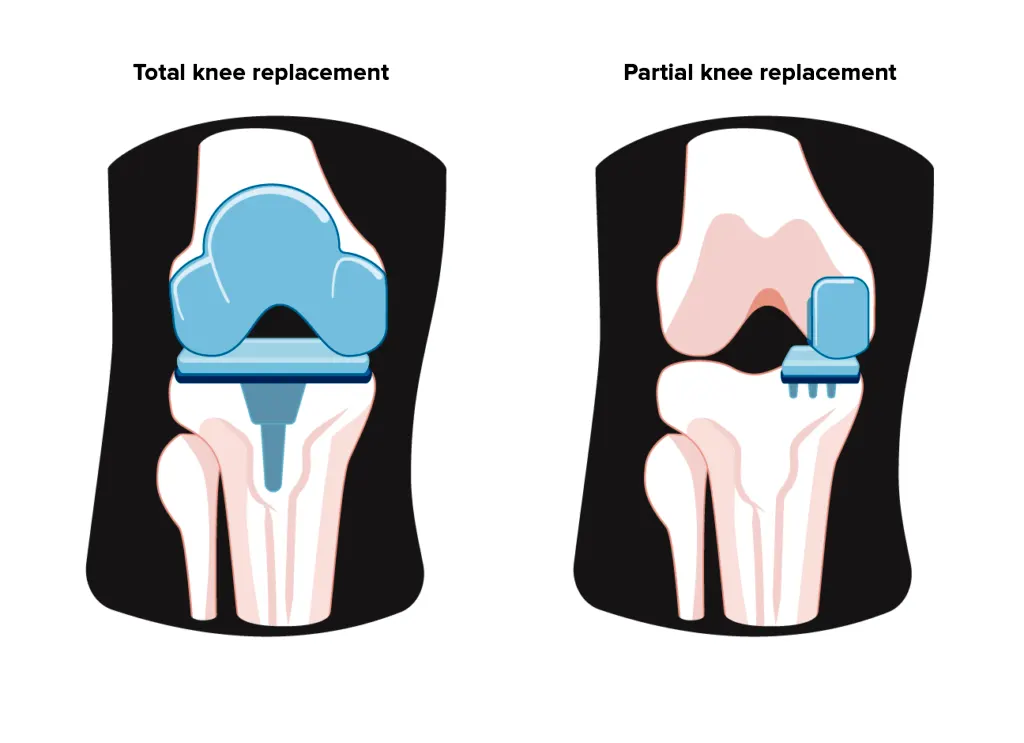
If you are dealing with severe knee pain and mobility issues, speak with a skilled GDMH Best knee replacement surgeon in Jaipur to restore movement and enhance quality of life.
Our surgeons are experienced and effective, supported by a skilled medical team.
Our treatment is affordable and provides top-notch facilities without any extra or handling fees.
We provide safe, custom medical procedures with advanced equipment and experts.
We provide 24/7 emergency medical assistance through ambulances and doctors.
We offer top orthopedic treatment with high cure rates. Visit us for effective therapy.
Get the best advice and healthcare from a top orthopedic knee specialist at the Best Knee Replacement Hospital in Jaipur at GDMH.
One of the Best Knee Replacement Surgeon in Jaipur, Rajasthan, Dr. Pratul Jain, is a well-known name among the medical fraternity when it comes to top orthopedic surgeons in India. He is presently serving as the HOD, Department of Joint Replacement and Arthroscopic Services at Ginni Devi Hospital, Jaipur. Dr. Pratul Jain has also founded Dr. Jain’s Joint Care to offer the best-in-class care for patients in the field of joint replacement surgery. With over 10 years of experience, he is committed to delivering high-quality treatment for joint replacement, joint reconstruction, and sports injuries using the most advanced and latest technologies.
Recognized as the best Knee and Hip Replacement surgeon in Jaipur, Dr. Pratul Jain has numerous achievements to his name that reflect his unmatched expertise and dedication in managing a wide range of joint-related disorders. He has successfully performed over 15,000+ joint replacement surgeries in the past two decades and holds the world record for performing Total Knee Replacement surgery on a 100-year-old patient. Additionally, he was the first in Rajasthan to perform painless and daycare knee replacement surgery, where the patient was able to walk within just four hours post-surgery. As a leading Hip Replacement Surgeon in Jaipur, Dr. Jain also specializes in advanced techniques for hip joint reconstruction and recovery. Beyond hospital walls, he actively organizes free medical camps in rural areas, offering consultations and surgical treatments for joint-related ailments to underserved communities.
Delivering world-class knee treatments to all their issues and ailments.
Patient
We took our mothers treatment of knee replacement from Ginni Devi Hospital. This hospital is actually a hub for joint replacements. Staff here is very caring and fully trained in managing such cases. My mother started walking on same day of surgery. Highly recommended for Knee replacement cases.
Patient
I recommend this as one one of the best hospital for bone & joint care surgery in Jaipur. Doctors are highly experienced and staff is also very good. Ginni Devi Hospital is one of the best place for quality and affordable orthopedic treatment in Jaipur.
Patient
Dr. Pratul Jain is very friendly, honest and professional doctor. Dr. Pratul Jain is one of Tha Best Joint Replacement Surgeon in Jaipur
Patient
You can call our hospital directly, visit our official website, or walk in for an in-person appointment. Our staff will help you connect with the best knee replacement surgeon in Rajasthan at Ginni Devi Hospital.
Yes, Ginni Devi Hospital offers online consultations for initial evaluations and follow-ups. You can book a virtual appointment with our expert knee replacement surgeons easily through our website or helpline.
The orthopedic surgeons at Ginni Devi Hospital are highly qualified with years of experience in performing complex knee replacement surgeries. Their dedication and skill have helped numerous patients regain mobility and quality of life.
Ginni Devi Hospital is recognized for its advanced orthopedic care, expert surgeons, state-of-the-art operation theatres, and personalized patient support. We are known for delivering successful outcomes, making us a trusted name for knee replacement surgery in Rajasthan.
If you’re searching for the best knee replacement surgeon in Jaipur, Ginni Devi Orthopaedic Hospital is the ideal destination. Our expert surgeons are known for their surgical precision, patient-focused care, and successful outcomes in total and partial knee replacement surgeries.
Ginni Devi Hospital is trusted by patients across Rajasthan for providing access to the best knee replacement surgeon in Jaipur. With advanced technology, experienced specialists, and comprehensive post-surgery rehabilitation, we ensure a smooth recovery and long-term relief from knee pain.

Ginni Devi Orthopaedic Hospital provides full range of orthopedic treatments and keeps your bones healthy in shape and away from diseases.
Treatments
Quick Links
© 2025 GDMH | All Rights Reserved.
I was suffering from severe joint pain. I couldn't move. Not only my body had stopped working but even my life went to a standstill. I couldn't carry out my daily activities and was dependent on my family for almost everything. And for an independent woman like me who always believes in doing things by herself, it was very difficult. But then after doing treatment from Ginni Devi Orthopedic hospital, I could stand on my feet again and got my independent self-back. Not only I could move but even my life that went to a standstill due to my joint pain gained momentum. And even the hands of my clock finally moved from the bad time and showed a good time. Thank you so much doctors and hospital team.